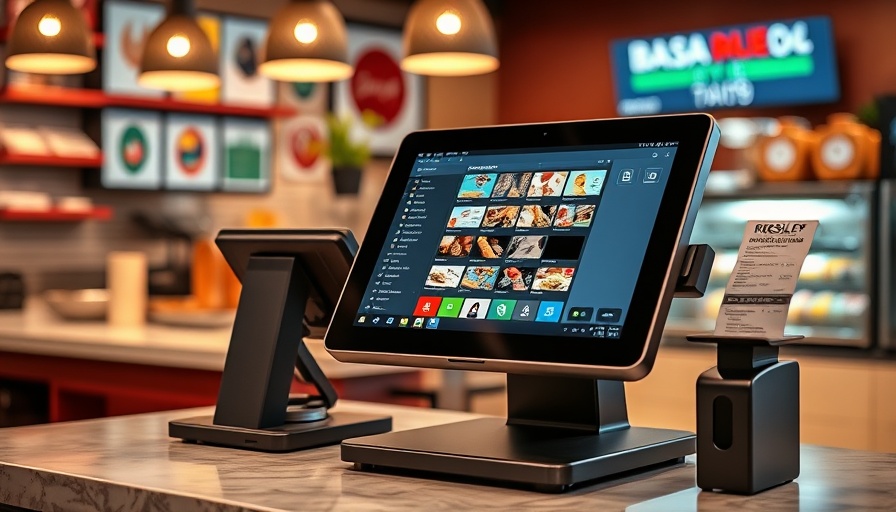
Bridging the Gap: How Lumi and Chowdeck Transform Restaurant Management
In the bustling world of Nigeria's dining scene, restaurants are navigating a torrent of online orders thanks to platforms like Chowdeck, which connects diners to an array of culinary delights. However, these businesses face a blockade when it comes to inventory management—the traditional methods are clunky and prone to errors. In an exciting turn of events, Lumi Business has announced a partnership with Chowdeck that shines a light on a new solution for restaurant inventory chaos.
Why Real-Time Order Management is Crucial for Restaurants
For busy eateries, an influx of online orders without streamlined management is a recipe for disaster. Restaurants previously had to juggle different systems, risking stockouts and overselling. The Lumi and Chowdeck integration resolves this issue by providing a unified platform that visually represents orders and inventory seamlessly. This means real-time updates and immediate notifications for staff—a must for keeping customers satisfied and ensuring operational efficiency.
The Future of Restaurant Operations: What This Means for SMEs
This integration is a giant leap towards a more automated future for African SMEs, especially in the food and beverage sector. The streamlined process allows restaurateurs to focus on what they do best: providing quality food and service without the stress of inventory mismatches.
Lumi’s new capabilities include tracking sales from both physical and digital channels, thus giving restaurant owners real-time visibility. Additionally, restaurant staff can accept or reject orders on-the-fly, ensuring they are never caught off guard. The built-in Kitchen Display System (KDS) not only simplifies operations but also elevates the customer experience significantly.
Why this Partnership Matters in the African Tech Landscape
The collaboration between Lumi and Chowdeck serves as a beacon for Africa's burgeoning tech startup scene. By leveraging smart tech and automation, they are setting a precedent for how businesses can adapt in a fast-paced digital environment. This wave of digital transformation in Africa is not just about keeping pace but leading the charge towards innovative practices that can travel beyond borders.
The Bigger Picture: Scaling Beyond Today’s Challenges
This integration is not merely about today. As Lumi continues to integrate other platforms like Glovo, it lays the groundwork for a sustainable ecosystem where commerce flows effortlessly. By standardizing inventory and sales management tools, businesses can scale up efficiently, transforming local eateries into regional champions.
As the African continent finds its footing in the global market, this kind of innovation speaks volumes about the rapid evolution of sectors like fintech, AI, and automation. Every tech-savvy entrepreneur should take note—this integration between smart technology and traditional business could be the blueprint for future advancements across the continent.
The integration of Chowdeck with Lumi Business is a harbinger of a smart inventory management future. For restaurateurs looking to streamline operations, embrace new technology, and ultimately improve their customer experience, this partnership stands as an opportunity not to be missed.
 Add Row
Add Row  Add
Add 


Write A Comment